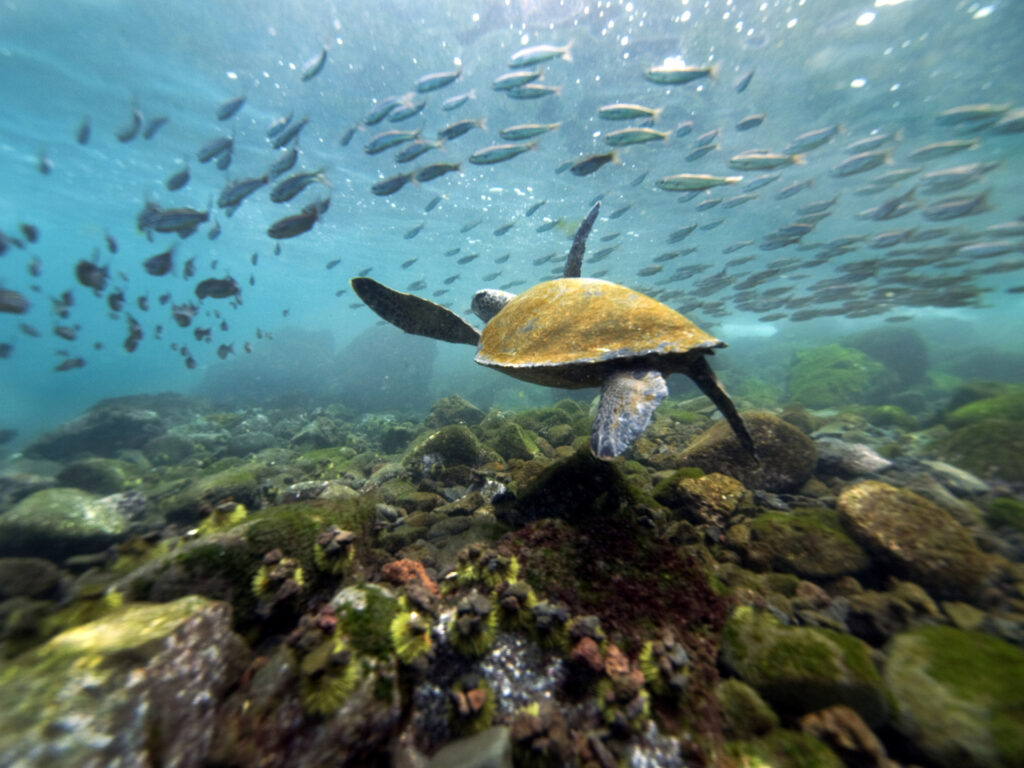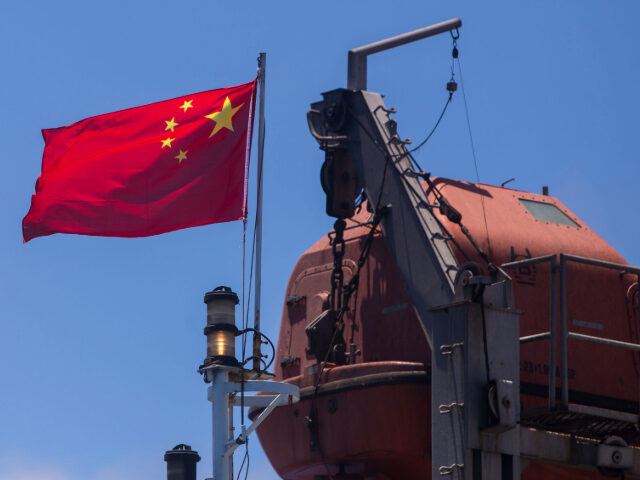Ecuador’s Navy announced the start of a campaign to protect the Galápagos Islands from the predatory practices of Chinese illegal fishing vessels that have, for years, endangered their maritime biodiversity.
The announcement comes shortly after the conclusion of Galapex III, a series of multinational naval training exercises designed to fight illegal fishing that the Ecuadorian Navy hosted from June 23 to July 9. The navies of the United States, Canada, South Korea, Italy, Spain, and neighboring nations — such as Colombia and Peru — participated.
“The problem is that the number of foreign fishing vessels reaches a point where they begin to plunder ecosystems,” frigate captain Guillermo Miranda told Reuters. “When they fish, they affect really migratory species, which in many cases are part of the Galápagos marine ecosystem. It’s a pretty serious problem, not just for Ecuador.”
Every year, a fleet of roughly 400 Chinese illegal fishing vessels sail through the waters of the Pacific and South Atlantic Oceans, pillaging local fish stocks through mass depredation, causing significant damage to local ecosystems, and polluting the seas by dumping manmade waste.
The predatory practices of the Chinese fishing vessels also cause economic damage to the local fishing trade of Latin American nations — such as Ecuador, Peru, and Argentina. The overexploitation of fishing grounds by the Chinese vessels prevents fish species and mammals — such as whales — from approaching the coasts of Chile and Argentina, disrupting local food chains.
The illegal Chinese fishing vessels carry out their predatory practices on the waters near the Galápagos Islands, a United Nations Educational, Scientific and Cultural Organization (UNESCO) World Heritage site that is home to some of the highest levels of endemism on the planet and that houses species not found anywhere else in the world. The unique biodiversity found in the Galápagos Islands inspired Charles Darwin and his theory of evolution.

(Jay Dickman/Getty Images)
The islands are protected under a marine reserve that was expanded in 2021 under the administration of conservative former President Guillermo Lasso. The expansion effectively makes the no-fishing Exclusive Economic Zone cover an area of more than 76,200 square miles. Ecuadorian authorities have repeatedly denounced the fact that the Chinese illegal fishing vessels turn off their radar systems to avoid detection before traversing through the protected zone.
While the illegal Chinese vessels fishing in Ecuadorian seas generally tend to capture giant squid or cuttlefish, they also kill all kinds of species caught in large nets and hooks, including sharks, whose fins are of great commercial value in Asian markets.
Experts have warned that the presence of Chinese illegal fishing vessels in Ecuador appears to be “permanent” and grew dramatically beginning in 2016 during the administration of socialist, pro-China former President Rafael Correa.
The most notorious case of the detention of a Chinese illegal fishing vessel by Ecuadorian authorities occurred in 2017. That year, a Chinese vessel known as Fu Yuan Yu Leng 999 was seized by local authorities as it crossed the Galápagos marine reserve. At the time of its capture, authorities found more than 300 tons of shark and fish, including 12 different types of endangered species — such as hammerhead sharks, bigeye thresher sharks, and pelagic thresher sharks. Following a legal process, Ecuador formally gained legal ownership of the seized vessel in 2020.
The Ecuadorian Navy modified the seized Chinese vessel and rebranded it as Hualcopo after indigenous leader Hualcopo Duchicela. The vessel, which participated in the naval exercises, will be a “key” part of Ecuador’s operations against the Chinese illegal fishing vessels.
“From being an illegal vessel that transported many sharks from the Galápagos marine reserve, it now reinforces our efforts against illegal fishing,” Navy Commander Boris Rodas told reporters.
Ecuador and the United States signed an agreement in September to increase their cooperation in the fight against illegal Chinese fishing vessels and other transnational maritime activities, such as drug trafficking, organized crime, and migrant smuggling.
Christian K. Caruzo is a Venezuelan writer and documents life under socialism. You can follow him on Twitter here.

COMMENTS
Please let us know if you're having issues with commenting.